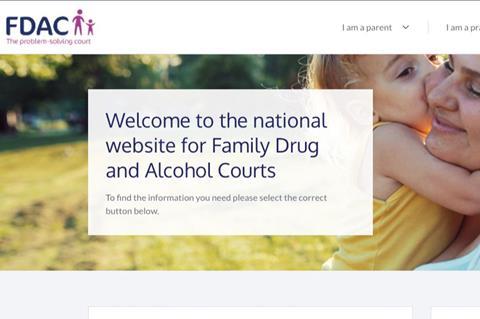A single case that goes through the Family Drug And Alcohol Court (FDAC) instead of traditional proceedings could save a council £10,000 in legal costs, according to analysis commissioned by the Department for Education.
The DfE asked the Centre for Justice Innovation, which together with Mutual Ventures provides central oversight support for FDACs, to update its cost-benefit analysis to help local authorities make a ‘value for money’ case for local FDACs.
The findings were presented at a Centre for Justice Innovation event this week.

Attendees heard that FDAC cases are typically concluded in an average of three hearings compared with six in standard proceedings. A single hearing costs a local authority £500 or, if barristers are used, £2,300.
Some 4% of FDAC cases ended in a contested final hearing compared with 24% of cases in standard proceedings. A contested final hearing costs a local authority £650 or, if barristers are used, £3,650.
Around 8% of FDAC cases use expert witnesses compared to 96% of comparison cases. Expert witnesses cost an average of £1,200.
A ‘cost benefit tool’ has been developed with three audiences in mind: existing FDACs, to provide evidence on the impact of the problem-solving court; local authorities considering FDACs and wanting to understand the level of investment needed and distribution of financial benefit; and central government, to provide the evidence necessary for policy and potential investment.
The Excel-based tool will shortly be available to download from the Centre for Justice Innovation’s website. Recognising challenges regarding the availability of cost data in care proceedings, the tool will be prepopulated with data based on national averages, which can be adjusted.
Dominic Wilson, manager of FDAC north east, told the event that it was important to have an externally approved evidence-based tool. ‘It allowed us to share with key stakeholders how the cost benefit savings had been calculated,’ he said.
Charlotte Prideaux, who leads on FDACs in the family justice policy unit at the DfE, said: ‘We welcome and support more FDACs opening and are exploring options.’
This article is now closed for comment.



























5 Readers' comments